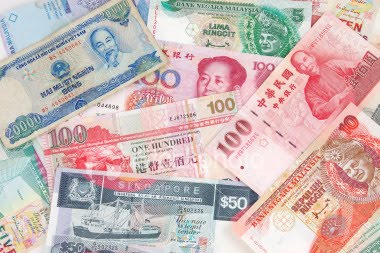
FT op-ed certainly has me thinking.
Reality of a reserve currency: you need to be willing to leave large amounts of it lying beyond your shores. People need ready access to it. You can't be in a serious capital importing mode (which tends to happen when you grow).
So, most experts say, China can internationalize the use of the RMB but it won't be a real reserve currency because China won't allow large enough amounts to float around out there (Beijing wants tight control over value), plus, the country still needs to develop a vast impoverished interior of half-a-billion people, so it'll be in the capital-importing mode (trade surplus, investment) for a long time.
Makes sense.
But then Arvind Subramanian (smart guy on China) and Martin Kessler (I don't know) write this op-ed in the FT, pointing out that East Asia is "now a renminbi bloc because the currencies of seven out of the 10 countries in the region - including South Korea, Indonesia, Taiwan, Malaysia, Singapore and Thailand - track the renminbi more closely than the US dollar."
Same is becoming true for India, Chile, Israel, South Africa and Turkey. That's some real influence, ja?
In their minds, these are the "gravitational forces of economics" that China naturally exerts over major trading partners. No, China ain't big enough to do that to the dollar (would that it could so we might gain some discipline from somebody besides the more bankrupt EU), but already we see the emergence of a RMB East Asian monetary regime.
Again, nothing happens over night. But ask yourself: you think this is going to go away or get stronger over time?
If it's the latter, then we're looking at the future.
What this means for China, oddly enough: as it is forced into certain reforms, now it ends up having to take into account not just what happens inside China but across the implicit RMB monetary regime that is East Asia.
But the upside: "If China were to liberalise its financial and currency markets, the lure of the renminbi would broaden and quicken."
Old bit of mine: more you want to connect, the more you are subject to all manner of rules - and they come in so many forms and sizes, but they all constrain. Success is interdependent; failure is all your own.
Fascinating stuff.